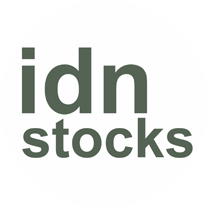Perusahaan Gas Negara A Strong Position
PGAS’ long-term outlook remains bright despite concerns over its short-term gas supply and it is well positioned to venture into other gas-related businesses, as well as undertake upstream takeovers. We maintain our BUY call, with DCF-based IDR6,000 TP unchanged, on its defensive characteristics and project diversification visibility, which is aligned with the strengthening of its integrated value chain.
Company background
PGAS is an Indonesian gas distribution and transmission company with a market share of around 85%. About 97% of what it distributes is earmarked for industries and power plants. PGAS has around 6,000km pipe length in total, allowing it to provide gas distribution and transmission services to clients in Sumatra, and West and East Java. Most of the company’s gas is sourced from upstream oil & gas (O&G) producers like ConocoPhillips (COP US, NR) and Pertamina on long-term contracts.
2013 review
PGAS’ 9M13 revenue was slightly below our full-year estimate, accounting for 72% of our FY13 target. Meanwhile, forex and derivative gains during this period helped offset its slightly lower-than-expected distribution volume. This brought the company’s 9M13 bottomline to USD642m (+3.3% y-o-y), or 76% of our FY13 forecast. We expect 4Q13’s distribution volume to pick up and reach our full-year distribution volume assumption of 832m sq cu ft/day (+3.1% y-o-y).
2014 outlook
We expect PGAS’ distribution volume to increase by 12% in FY14 on the back of higher gas supply from its upstream O&G providers. Thus, we maintain our margin spread of USD4/million British thermal unit (mmbtu) for 2014. The key factor for long-term strong volume growth will be infrastructure improvements.
Valuation
PGAS is currently trading at 11.5x FY14F P/E, which is a 10% discount to its 3-year historical forward P/E, and we maintain our BUY call and IDR6,000 TP. PGAS’ main business will remain gas distribution and transmission in the short- to long-term, as there are plenty of untapped opportunities in Indonesia. Recent negative sentiment towards the company lies with the open-access and unbundling policy, which may threaten its dominance in the gas pipe distribution business.

